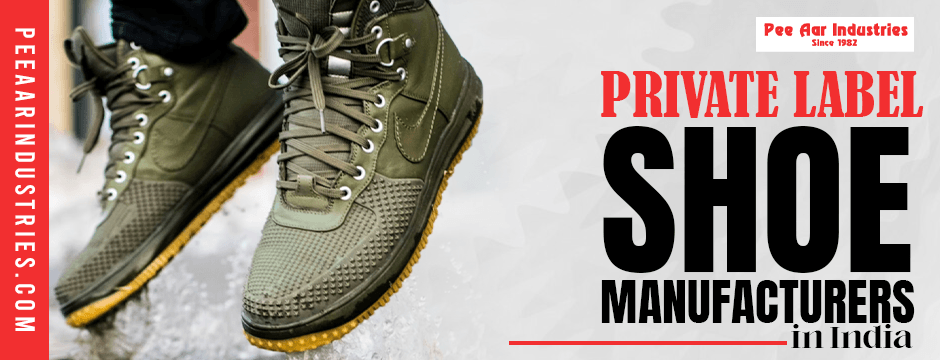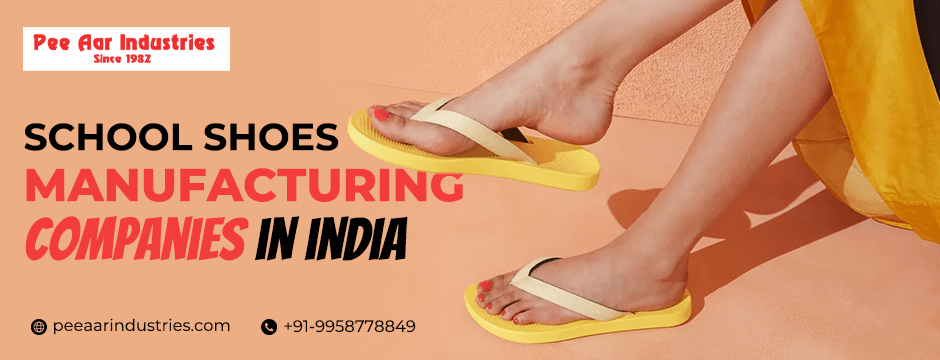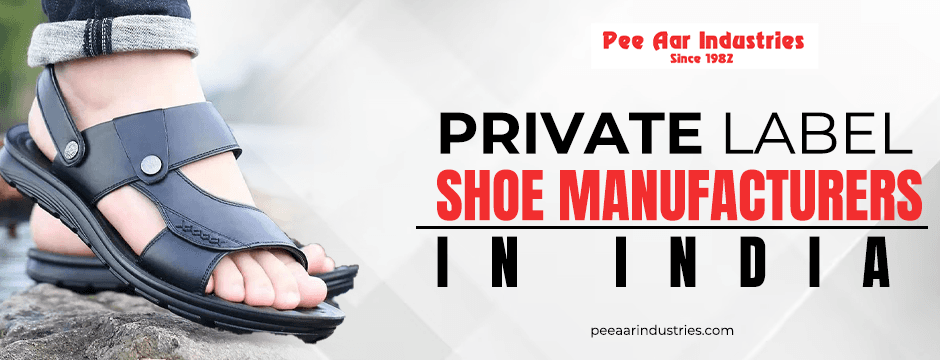India has emerged as one of the major centres for footwear manufacturing, providing affordable and quality solutions for businesses that want to develop private label products. The country boasts a large number of footwear manufacturers who can produce a wide range of shoes, slippers, and sandals, from casual wear to formal footwear, sports shoes, and more. Choosing the right private label shoe manufacturer in India is a very important decision that can affect the quality and success of your brand.
In this blog, we will discuss key considerations while choosing private label shoe manufacturers in India. We will ensure you have an informed choice to deliver the best product for your brand. From quality control to technology adoption, here’s what you need to know.
1. Experience and reputation of the manufacturer
When searching for private label shoe manufacturers in India, the first thing to consider is their experience and reputation in the market. Established manufacturers with years of experience tend to have refined manufacturing processes, a deep understanding of customer needs, and an efficient supply chain. These manufacturers are likely to offer products that meet international quality standards, which is crucial when you’re building a trusted brand.
Moreover, the more reputable manufacturers can offer better service and support in terms of communication and delivery. One should research the company’s history, check out its clientele, and read reviews or testimonials about its credibility.
2. Consider the Range of Footwear and Customization Options
Every brand has different requirements, and private label shoe manufacturers must be flexible enough to meet these demands. When selecting a manufacturer, ensure that they offer a wide range of footwear options, including different styles, sizes, and designs. This flexibility is essential if you’re planning to expand your product line in the future.
Customization is also an important factor. Major Indian private label shoe manufacturers should be able to produce footwear that matches your specific brand identity. This includes customization in terms of materials, colours, patterns, and logo placement. For instance, if you have a vision for a particular style of shoe that aligns with your brand image, the manufacturer should be able to work with you to create it.
3. Material Quality
The quality of materials used in shoe manufacturing is critical to the durability and comfort of the product. Shoes made from substandard materials will not only fail to meet customer expectations but will also damage your brand’s reputation. When choosing a private label shoe manufacturer, ensure that they source high-quality materials such as durable leather, breathable fabrics, and lightweight soles.
Additionally, check if the manufacturer prioritizes sustainable and eco-friendly materials. As consumers increasingly demand environmentally-conscious products, working with manufacturers who use ethical and sustainable materials can give your brand a competitive edge.
4. Inspect the Manufacturing Process and Technology
A strong manufacturing process is essential to producing footwear that meets quality standards. A manufacturer’s investment in modern technology plays a significant role in product quality and consistency. Indian private label shoe manufacturers who adopt advanced manufacturing techniques can produce footwear faster, more efficiently, and with fewer defects.
For instance, manufacturers using automated machinery for stitching, cutting, and assembly can achieve higher precision and reduce errors. Moreover, technology can help manufacturers improve product design through CAD (Computer-Aided Design) and 3D prototyping, ensuring that the final product matches your vision exactly.
A manufacturer’s adherence to modern technology is also linked to their ability to scale production, allowing you to meet growing demand without compromising on quality.
5. Quality Control Measures
Quality assurance is a non-negotiable aspect of any footwear manufacturing process. When selecting Indian private label shoe manufacturers, inquire about their quality control measures and inspection processes. A manufacturer that employs rigorous quality control at each stage of production is less likely to produce defective products.
Key factors to look for in a manufacturer’s quality control process include:
- Material inspection: Ensuring that all raw materials are of the highest quality before they enter the production line.
- Production line checks: Monitoring every stage of the production process to detect issues early and reduce errors.
- Final product inspection: Conducting thorough checks on the finished products for durability, comfort, and appearance.
By focusing on manufacturers with strong quality control practices, you can minimize the risk of receiving products that fail to meet your standards or those of your customers.
6. Sustainability and Ethical Practices
As consumers become more socially and environmentally conscious, the demand for sustainable and ethically produced products has risen. It’s essential to partner with manufacturers who follow sustainable practices, such as reducing waste, recycling materials, and utilizing renewable energy sources.
In addition, ethical practices like fair labour policies, safe working conditions, and fair wages for workers are essential for maintaining a good reputation and avoiding potential legal issues. Make sure to ask potential manufacturers about their commitment to sustainability and ethical production practices.
7. Turnaround Time and Consistency of Delivery
Another significant factor is whether the manufacturer will meet your time-to-market production requirements. Footwear production must be delivered within a set deadline, especially for seasonal campaigns and to maintain upscaling demand. Make sure to find a reliable manufacturer who will respect delivery deadlines without jeopardizing product quality.
It is also important to discuss the lead time for developing prototypes and then full-scale production. A supplier who can come back with proto-types quickly, and whose consistent production schedules allows you to easily manage your inventories and make timely responses in the market.
8. Price and Payment terms
Although the price alone should not decide on a private-label shoe manufacturer in India, it is crucial to consider while selecting one. The manufacturer must charge according to your budget yet fulfil the desired quality standards you want. So, manufacturers charging less but are not compromising the materials or their workmanship should be considered for final selection.
In addition, address the payment terms, including deposits and payment schedule, to fit your financial plan. Transparency in pricing and clarity in payment terms are necessary to ensure a hassle-free business relationship.
Final Thought
Selecting the right private label shoe manufacturers in India is a critical step towards creating high-quality footwear that aligns with your brand values. By considering factors like experience, material quality, production technology, quality control, and ethical practices, you can build a strong partnership that ensures the success of your brand.
At Pee Aar Industries, we have a passion for delivering top-quality footwear products to our valued customers. Focusing on superior quality materials and the latest state-of-the-art technology, plus strict quality control checks, ensures every pair of shoes we manufacture can stand up to the highest demands of performance and durability.
Pee Aar Industries can help you create a small line of footwear or extend your product range with quality assured. Contact us today to discuss your requirements and get the process of creating your own successful private-label shoe brand started.




